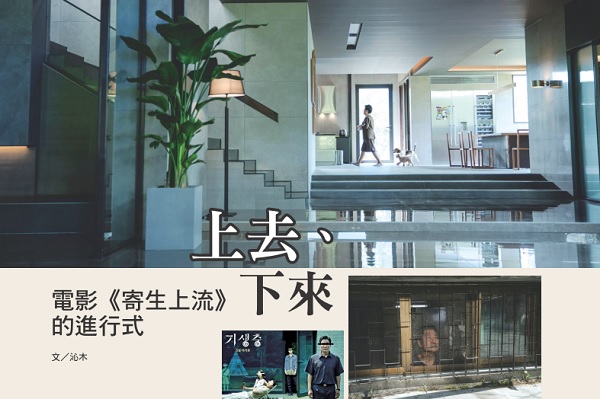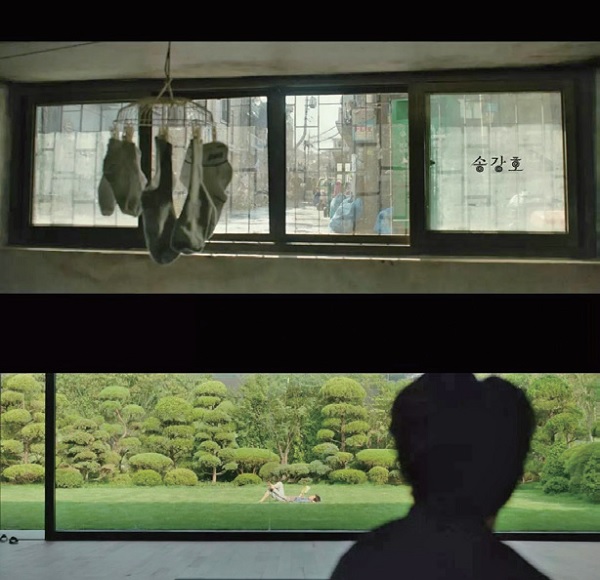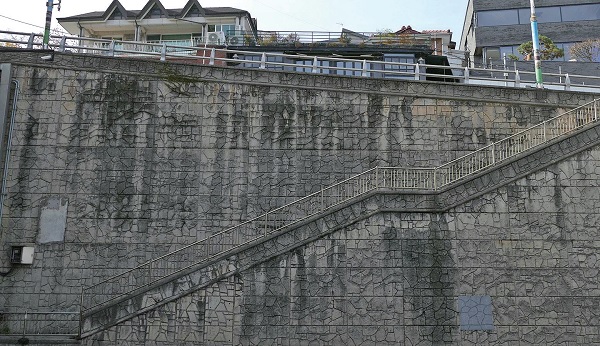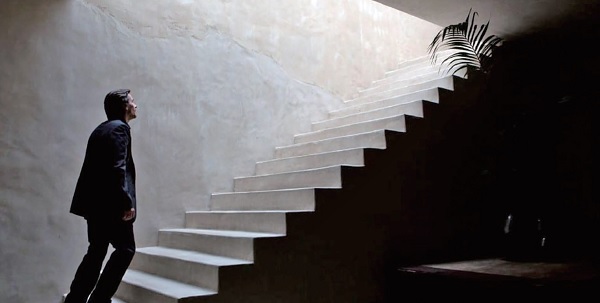go up, come down
Progress of the movie "Parasite"

▲The absurd and thrilling black comedy "Parasite" made the audience nervous, hilarious, and a little heartbroken.
Look at yourself and others
From the windows parallel to the ground, you can see pedestrians, vehicles, and flowing life. This is the window for lighting and ventilation in the "semi-basement", and it is also the division between the upper and lower classes of society. The residents inside are not entirely underground, but always a little shorter.
The Korean movie "Parasite" (also translated as "Parasite") tells the story of the Kim family who live in a semi-basement and use all possible means to move to the upper class of society. The absurd and thrilling plot, black humor, and scenes contain graphic language, making people nervous, hilarious, and a little heartbroken when watching it.
Describing the gap between rich and poor in Korean society and satirizing the hidden rules of class distinction, "Parasite" won the Palme d'Or, the highest honor at the 2019 Cannes Film Festival in France, and the highest honor at the 2020 Academy Awards in the United States. Best Film, Best International Film, Best Director, and Best Original Screenplay.
Such regional works may not only present the phenomenon of a single culture, but should have a more common appeal in order to be accepted and appreciated by the general audience and industry commentators everywhere.
What pain points does this movie touch on in human nature, so that people who watch it have to look at themselves and others more deeply?
The four members of the Jin family, including father, mother, brother and sister, have no regular jobs or stable income. Even to access the Internet, they have to hitchhike from neighbors or nearby cafes to receive information on their mobile phones.
After being introduced by a friend, his son Ki-woo came to the wealthy Park family to serve as an English tutor for the business owner's daughter Da-hye. Then he introduced his sister Ji-ting to become the painting teacher/art therapist of the Park family's son Da-song, and then introduced his father Ki-taek to become Park's son. The president's driver, and then mother Zhongshu also came in to become the housekeeper.
However, the academic qualifications, experience, and relationships between the four people were all fake; the entire employment process was a complete scam.
The Pu family went out to camp, and Zhongshu stayed behind. When they brought the family in to eat and drink, the former housekeeper Wen Guang suddenly appeared and asked to go into the storage room to get something.
When the secret door of the underground refuge room of the mansion was opened, a deeper secret was revealed, but it also exposed the Jin family's fraud. But at this moment, the Pu family turned around and came back, causing Pandora's box to be opened and had to be closed again.
But what had overflowed had to be squeezed in - Wen Guang and her secret were kicked back underground, and the Jin family's father, brother and sister escaped in a hurry.
The situation cannot return to the beginning as if it never happened. The force to restore it to its original state is like that sudden heavy rain, which is overwhelming.
People who try to move up by any means are going backwards one by one, literally or figuratively, back underground.
Is this their fate?
walk up
People climb to higher places. The film is set in Seoul, a metropolis located at the foot of Namsan Mountain. Due to the undulating terrain, the up and down slopes divide the residential areas and connect life encounters.
A friend of the Kim family's son Ki-woo sent a "suseok" (naturally formed landscaping stone) as a sign of wealth and prosperity, and also gave Ki-woo the opportunity to work part-time.
When Ji Yu held a computer-generated diploma and went to the Pu family to apply for a tutor, he turned his back to the door of the semi-basement home and walked forward toward the sunlight. He climbed up one slope after another, stepped into the front yard of the Pu family, and could already see most of the city; he continued to climb the stairs, entered the hall, and headed towards the Pu family's daughter's room.
The ramps and stairs divide and connect the Jin family, which has no income, status and dignity, and the Pu family, which is rich, status and respected.
Perhaps Jiyu's original intention was just to support the family, and he even told his father that the diploma was not a forgery, but just printed in advance. Unexpectedly, climbing up to see the distance and entering the Pu family, which has a high terrain and status, opened his eyes and gave him new ideas.
So, Jiyu did not hesitate to make up another lie and drag his sister into the trap. Astute as she was, she quickly realized that her status was different. Although they are all employed by the Pu family, she is a respected "teacher". From the tone and attitude of her words, the "housekeeper" who is almost a servant should know that she is one level higher.
In order to create "employment" opportunities for her father, Ji Ting set a trap and made President Park's driver lose his job.
The family collaborated again, falsely accusing the housekeeper of tuberculosis so that Mrs. Park could fire her and bring the mother to the forefront.
In the process of climbing, the four members of the Jin family pulled down those in front again and again and climbed up on their heads. That offering stone seems to really bring good luck, and it seems they have succeeded: from sweaters and shorts to shirts and ties; from making origami boxes for the "Pizza Generation" to eating pizza in the store; from drinking soju to drinking whiskey; From small windows that are level with the horizon in the semi-basement, to large bright windows in the spacious living room of the Park family.
They were indeed not kind; what they did was indeed wrong. The Kim family’s mother said that Mrs. Park “isn’t rich and kind, but kind only when she is rich.” What about the Kim family? Are they not kind because they have no money, or are they not kind because they have no money? Their tendency to follow others and plunder cunningly may not only be for survival, but also to gain attention and dignity.

▲From the small window in the basement to the large window in the Park family’s living room, does it mean that the Kim family has succeeded?
where to draw the line
President Park has mentioned "boundaries" many times. Everything should be done in an orderly and differentiated manner, as long as the boundaries are not crossed. This is not only his personal opinion, but also a characteristic of Korean culture. The grammar will be different depending on whether you are talking to superiors, subordinates, or peers. When drinking, you turn sideways to cover the bottom of the glass... and then emphasize the difference between superiority and inferiority, elder and younger. However, do the boundaries drawn by external rules destroy people's respect for others from the bottom of their hearts?
President Park keenly smells the special smell, which can only be smelled around the lower class people, such as the Kim family, the husband of the former housekeeper Wen Guang, and when riding the subway. Once the smell spreads, no boundaries can stop it. But does having a smell mean you are inferior? From the top to the bottom, which level is the boundary between the upper and lower levels? Which level do the many levels in the middle belong to? After all, no matter which level you are at, you can always go up or down.
If people only look at others based on class and status, they will always have prejudices, and the contempt brought about by prejudices replaces the respect they deserve. The original order and distinction resulted in flattery from above and oppression from below, blinding the appreciation of people and losing their due dignity.
Apart from the obvious power, wealth, career, fame, etc., what distinguishes the upper and lower levels is regarded by Christians as secular levels. So is there a "spiritual" level? Do Christians put their feet on the Bible and look down upon "sinners", unwilling to associate with them, in order to be "set apart"? Is there no hierarchy within the Christian community, where service, spiritual practice, Bible knowledge, etc. are used consciously or unconsciously as a measure to measure each other?
How can human dignity be built on external achievements? Does a person's value depend on his class? Man is fearfully and wonderfully created, in the image and likeness of God, and his value and dignity come from the God who gives life.
Lines distinguish different things, but they cannot delineate value and dignity. Don’t we all need to respect each other, whether senior or junior, senior or junior, upper or lower, believers or non-believers, lay believers or pastors?
Moreover, the salvation completed by the Lord Jesus not only redeems those who were originally in the power of sin, but also gives those who believe in Him the glorious and honorable status of children of God. Such dignity crosses social and cultural boundaries and breaks visible and invisible barriers. Since the Lord Himself often eats at the same table with all kinds of people, can all His people also treat one another with love?

▲The stairs in one of the scenes in the play are like every level in life. How should you and I decide to go up or down?
Fall
In the dark living room of the Park family, the Jin family thought they had reached the upper class. Unexpectedly, lightning flashed across the sky, and then a torrential rain began. Their life on the ground took a turn for the worse. As Jin's mother said: "Like a cockroach seeing the light, Running around." The master came back, turned on the light, and the three members of the Jin family fled in panic.
The water flows downward. The Jin family ran all the way down in the rain, down the winding stairs, into the tunnel, and then were washed down by the rushing rain until they returned to their home that was flooded with sewage. That night, father Kize and his son lay on the floor of the gymnasium that served as a temporary shelter, thinking about what to do next, or simply no next step at all. Dad said that the best plan in the world is to have no plan, because life does not go according to plan. Life has reached this point, can it sink any further? Is there a chance for life to turn around?
The Kim family once again put on their hypocrisy and appeared at the Park family's banquet. Jiyu was worried about the secret from the previous night and wanted to give the stone to the family still hidden in the basement. Maybe he felt that they needed it more, or maybe he felt that the injured person should not be left alone. The secret door opened with good intentions turns out to be greater violence. The deepest darkness of human nature attacks the beauty under the sun, leaving irreparable damage.
The gap between the rich and the poor is indeed unfair, but the deceitful Jin family deserves what they deserve, and the Park family, who thinks they are superior to others, does not have a happy ending. Is it fair?
Water can carry a boat, but it can also capsize it. The rain is overwhelming and seems to have ruined the plan, but is it possible to wash everything away? It is true that life cannot go according to plan, but at every turn, there is an opportunity to choose—human righteousness or God’s righteousness.
How can offering stones bring luck? After it knocks on the door, it still depends on how people go, whether in their own way or in God’s way. At every turn in their upward climb, the Jin family chose to go their own way, thinking that a little bit of deception would not cause too much evil. They thought they had crawled out of the basement and into the sunshine, but little did they know that they were still living in darkness because of their accumulated sins.
And the Park family, which seems to live in the sunshine, is really as beautiful as the picture? Money and status bring comfort, but do they fill the alienation between family members? Have they ever treated those below them with kindness and respect? Do they have the brightness and warmth of the sun in their hearts?
Human good and evil are just like a winding and long staircase? Each level is a level, and all decisions need to be made according to the definition of the good Lord.

▲When we choose God’s goodness, people can walk out of darkness and into light.
go out
That offering stone, which symbolized luck, really took the Jin family all the way up at first, until a wrong choice cost them everything. At the end of the story, Ki-woo put the offering stone into the stream and returned it to its original place. He plans to study hard and make money so that he can buy the big house that originally belonged to the Pu family, so that his father can straighten his back and leave the darkness, and once again look up to the sky and the light. This time, he chose to take a difficult road, a long road, but it was the right road.
The ending song "A Cup of Soju" highlights the coldness and bitterness of life, burning the hearts of people on and off the screen. Although the experiences of the Jin family are exaggerated, they are a sharp reflection: on the ladder of life, whether it is wealth, status, fame, or good, evil, light, or darkness, there are people who go up and people who get down. However, whether you go up or down, you don’t have to stop at that level.
The kind and righteous Lord looks after those at the bottom and gives responsibilities to those at the top. Even if you make a mistake or slip at any turning point in your life, you can walk towards Him again as long as you are willing to turn around. By choosing God's goodness, we can all step out of darkness and into light.
* 有關電影《寄生上流》中家庭關係的省思,歡迎閱讀《真愛》雜誌113期,廖美惠所作〈向上提昇?向下沉淪?〉.
Qinmu, loves reading and watching videos, and thinking about life issues presented in words and images.
